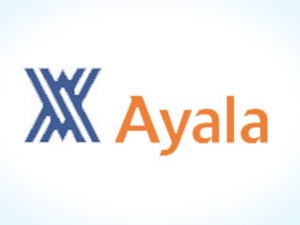By: Doris C. Dumlao, Philip C. Tubeza
Philippine Daily Inquirer
The Ayala Corp. has bagged the first public-private partnership project auctioned by the Aquino administration—the P2-billion Daang Hari-South Luzon Expressway link road.
The Ayala group has bagged the P2-billion Daang Hari-South Luzon Expressway link road, the very first infrastructure-building project auctioned by the Aquino administration under the much-awaited public-private partnership (PPP) framework.
After this project, conglomerate Ayala Corp. will study whether to bid for two other toll road projects in the government’s PPP pipeline—the NAIA Expressway and the North Luzon Expressway-South Luzon Expressway connector projects, according to Ayala Corp. managing director Eric Francia.
Through property unit Ayala Land Inc., the conglomerate is also interested in the privatization of the operation and maintenance of the Laguindingan Airport in Cagayan de Oro, Francia said.
“Part of our strategy is venturing into new business areas and we’ve identified power, transport and infrastructure in line with the government’s [plan] to develop infrastructure and push PPP.
This is really our first step, our foray in transport infrastructure. It’s modest in size but it’s a good entry platform,” Francia said.
“We are delighted to have submitted a competitive proposal for the first project under the government’s public-private partnership program.
This is a good initial foray in the transport infrastructure space and we believe this successful experience working within a public-private partnership framework would be helpful in pursuing future projects under the PPP program,” Ayala Corp. president and chief operating officer Fernando Zobel de Ayala said.
“This road project provides significant opportunities for synergies within the Ayala group, especially our real estate group, Ayala Land, as it cuts travel time to our residential and commercial projects in this rapidly growing part of the metropolis,” he added.
The floor price for the project was set at P371 million, representing the amount already spent by the government on the initial work on the toll road covering 2.3 kilometers.
Daang Hari is a major arterial road connecting rapidly growing towns of Imus, Dasmariñas and Bacoor in Cavite to Metro Manila via the SLEx. It will be a new road that will exit South Luzon Expressway near the Susana Heights Interchange and pass through government properties in Muntinlupa, ending at Daang Hari near Verdana Homes in Imus, Cavite.
This road provides strategic access to Cavite, much-needed relief to traffic in the congested Alabang-Zapote Road and Commerce Avenue.
Singson said the Daang Hari-SLEx Link Road Project was a “strategic component” of the Metro Manila Urban Expressway Network Master Plan, which intends to provide a high-standard highway within a 200-kilometer radius of Metro Manila.
He expected the Daang Hari construction to start by February 2012 for segment 1 and September 2012 for segment 2. The project will be implemented following the Build-Transfer-Operate (BTO) arrangement for a period of 30 years.
The starting toll rate for the project at the opening year is P17 for class 1 vehicles, P34 for class 2 vehicles and P51 for class 3 vehicles, all inclusive of the value-added tax.
The DPHW is expected to formally award the concession to Ayala on December 22. It is also expected to complete all right-of-way requirements within six months of signing of the concession agreement.
The Ayala conglomerate is getting into this project in partnership with Getinsa, a Spanish engineering company with deep expertise in infrastructure project globally. It expects to begin the detailed design stage, which will be completed in four months.
SOURCE: http://business.inquirer.net/35169/ayala-bags-daang-hari-toll-road-project
